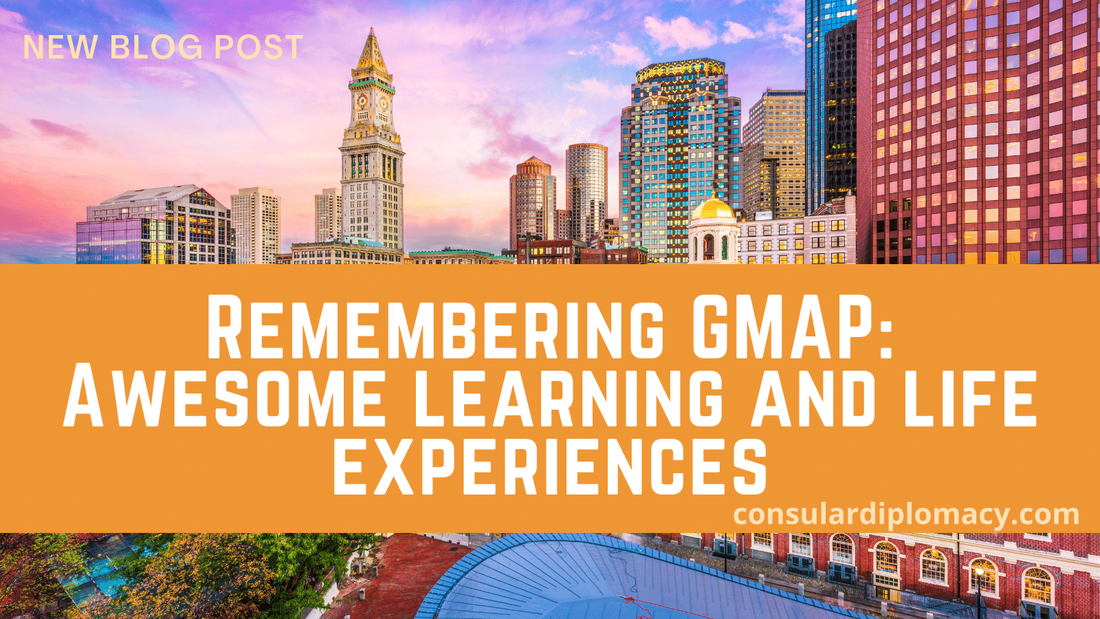 Last weekend the Global Master of Arts Program (GMAP) of the Fletcher School of Law and Diplomacy celebrated its 14th alumni weekend, the first-ever zoom gathering. I was able to participate, and it brought back fantastic memories of my partaking in the program. For those not familiar with GMAP, you can check its webpage here. It is an excellent program with the highest standards while demanding and flexible at the same time. It is a hybrid model that combines online classes and three in-person residencies (two in Boston and one in an overseas location). This feature was the most attractive to me, as I studied when distance learning was in its infancy; therefore, personal contact was vital. I still remember the first dinner sitting with my new classmates back in the summer of 2007. It was by far the most exciting conversation about international affairs that I had in a very long time. After this Alumni Weekend, I can attest that GMAP still has the uniqueness of bringing together people from all walks of life who have extraordinary knowledge and experience in their fields and are ready to share them with anybody interested. Luckily for me, I was then stationed in Boston working at the Consulate General of Mexico, so the distance I traveled to Fletcher was less than five miles from my home. This was a lot less than most of my classmates that flew from the Caucasus, Central Asia, Africa, Southeast Asia, and other faraway lands. I stayed in the residence hall as the rest of the class. Living near Fletcher allowed me to live GMAP in a more profound way. I was privileged to participate in a Fletcher alumni weekend, use the library, and attend some of the always magnificent conferences and seminars that the school organized year-round. I was also lucky enough that the mid-year residence was in Singapore, a country that has always fascinated me ( I did my BA's thesis about it) and where I traveled often when I lived in Malaysia in 1996-1997. By January 2008, the city-state has reinvented itself once again. We were extremely fortunate to meet Lew Kuan Yew, the country's founding father, an encounter that I still cherish today. What I most vividly remember about GMAP nowadays, almost 13 years ago, was the professor's talent and competence and my peers' incredible experiences. The knowledge that I acquired still serves me in my work and life today. For example, in the International Politics class, we learned about the fragility of democracy while studying the Middle East before the Arab Spring. One of the worries of our professor was that democracy is not given and has to be supported and nourished, otherwise, it could die or become a zombie. Last week's events in Washington and the struggle of democratic rule worldwide are clear examples that it cannot be taken for granted. We have to work to support democracy. The professor knew then what could happen if we did not take care of it. Another strength of the GMAP's academic program is the perfect combination of courses, from International Law from a practical perspective to International Trade and Finances (that we suffered but learned so much), Security studies, personal and foreign policy leadership, and negotiations. The requirement to work in teams was a complicated hard-work adventure, but it was one of the most rewarding and had long-lasting benefits for me. The requirement to produce a Master's thesis was challenging but attainable. After all these years, I still have the program's laptop (still works), the DVDs, and the reading materials that arrived in packages with some goodies to lessen the shock of seeing all those binders! I have used them in different circumstances since graduation. Some of the greatest moments were the dinner at Dean Nutter's home before graduation or the lobster-fest in a beautiful Massachusetts coastal town during the first residency. After spending two weeks together in Boston, from being total strangers, we became a closed-knitted group with enormous brainpower, extensive global proficiency from all corners of the world, and diverse backgrounds. Back then, technology was not as evolved as today, so studying far away from the school was a challenge. The iPhone was launched a few weeks before the residency began, and broadband internet was in its infancy! However, we managed to have five-time-zones group meetings and intense and lively discussions on the boards. Besides learning from our expert professors and knowledgeable classmates, GMAP allowed me to improve my abilities and skills and better know myself. The group work where challenging but extremely rewarding for self-awareness and own development. That year, even if I lost a lot of social meetings, movies, and other gatherings, it was a lifetime experience that will always be with me. In retrospect, GMAP prepared me well for the COVID-19 pandemic, where everything is done remotely, including international negations and team meetings. Thanks, GMAP! This Alumni Weekend was extraordinary. Seeing old professors and classmates was awesome while seeing live the amazing new GMAP team. During the breakout sessions had the chance to talk to other year's GMAPers (graduates) from the program, and they are great as my classmates were. The lectures had a trove of analysis that is hard to find in today's information overloaded world. Definitely, GMAP still has this uniqueness that makes it an excellent investment. I cannot finish this post without remembering two Mexican GMAPers Diplomats that I will always be in debt: Miguel Monterrubio and Aldo Aldama Bretón. Thank you for showing me the GMAP way! DISCLAIMER: All views expressed on this blog are that of the author and do not represent the opinions of any other authority, agency, organization, employer or company.
0 Comments
Your comment will be posted after it is approved.
Leave a Reply. |
Rodrigo Márquez LartigueDiplomat interested in the development of Consular and Public Diplomacies. Archives
May 2024
Categories
All
|
